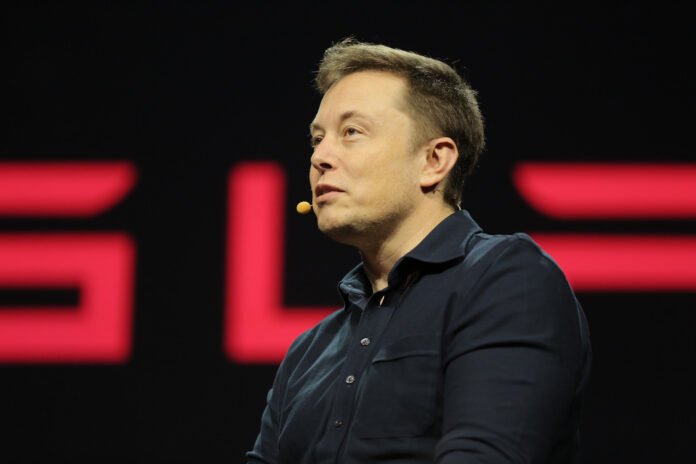Elon Musk’s childhood experiences in school continue to spark discussions about the impact of labels on young minds. The billionaire entrepreneur recently addressed reports that his teachers once described him as “retarded” due to his habit of zoning out during class. His response on X (formerly Twitter) was characteristically candid. “They weren’t entirely wrong tbh,” Musk admitted, offering a rare glimpse into his past struggles with the rigid expectations of traditional education.
His father, Errol Musk, had previously claimed that teachers in South Africa often expressed concerns about his son’s classroom behavior. Musk’s tendency to stare into space made educators believe he had learning difficulties. However, what was once perceived as a weakness ultimately became one of his greatest strengths. Musk later revealed that he was simply lost in deep thought, a characteristic that would later drive his innovations in artificial intelligence, space exploration, and electric vehicles.
Experts warn that labeling children can have a profound psychological impact. Clinical psychologist Dr. Meenal Sharma explains that children who receive negative labels from teachers or peers may internalize those words, affecting their confidence and self-esteem. She points out that terms like “retarded” are especially damaging, as they reinforce a belief that a child is incapable of success. “Musk’s story is a reminder that unconventional thinking is often misunderstood in structured learning environments,” she adds.
Musk’s struggles in school highlight a broader issue—how education systems often fail to accommodate neurodivergent children. His ability to focus intensely on specific interests aligns with common traits of individuals with Autism Spectrum Disorder or ADHD, conditions Musk has previously mentioned in public discussions. In an interview on Saturday Night Live, he acknowledged that he has Asperger’s syndrome, a condition that affects social interactions but often comes with exceptional cognitive abilities.
Despite the challenges he faced, Musk’s intellectual curiosity remained unstoppable. He immersed himself in books, from science fiction to physics, and eventually excelled in areas that fascinated him. His passion for innovation proved more valuable than traditional classroom learning. Many of his greatest ideas—such as launching a private space company or developing self-driving cars—stemmed from the very thought processes that made him stand out as a child.
The issue of how society perceives intelligence remains a crucial topic. Many of history’s greatest minds, including Albert Einstein and Thomas Edison, faced similar struggles in school. Einstein’s teachers reportedly called him slow, while Edison’s mother removed him from formal education after a teacher deemed him “addled.” Like Musk, these individuals proved that rigid academic structures do not always recognize true potential.
Musk’s experience also raises questions about how parents and educators can better support children who think differently. Education specialists emphasize the need to foster creativity, rather than suppress it with labels. Encouraging children to pursue their interests, even if they don’t fit conventional standards, can lead to remarkable achievements.
As Musk continues to push the boundaries of technology and business, his story serves as a powerful lesson. His success is a testament to resilience and the ability to thrive despite early misconceptions. The very traits that set him apart in school—deep thinking, curiosity, and an unconventional approach to problem-solving—became the foundation of his groundbreaking ventures.
The conversation around neurodivergence, education, and success is evolving, and Musk’s reflections on his past contribute to that dialogue. By sharing his experience, he highlights the importance of looking beyond labels and recognizing the potential that lies in every child, no matter how different they may seem.
Musk’s story also sheds light on how society often underestimates the power of independent thinking. Many children who struggle in traditional school settings are not lacking intelligence but are instead wired to process information differently. The education system tends to reward memorization and structured learning, leaving little room for students who thrive in creative or exploratory environments. Musk’s ability to think beyond immediate classroom tasks eventually allowed him to revolutionize multiple industries, proving that success is not always measured by conventional academic achievements.
His experience also highlights the importance of resilience in the face of criticism. Being labeled negatively at a young age could have discouraged him, but instead, Musk continued to push forward. His story reinforces the idea that setbacks and misunderstandings do not define a person’s potential. In many cases, adversity becomes a driving force for those who refuse to accept limitations imposed by others.
The discussion around how schools handle neurodiverse students is becoming more relevant as awareness grows. Modern educational approaches are gradually shifting towards recognizing different learning styles, but there is still a long way to go. Musk’s journey serves as a wake-up call for educators to rethink how they support children who do not fit into standard molds. Encouraging critical thinking and allowing space for imagination can help unlock the potential of future innovators who may otherwise be overlooked.
Beyond the classroom, Musk’s experience also speaks to the broader issue of how society treats those who do not conform. Many workplaces and industries still struggle with inclusivity when it comes to different cognitive abilities. Musk’s rise to global influence shows that embracing diverse ways of thinking can lead to groundbreaking progress. If more institutions recognize this, the world could benefit from a wider range of talent and innovation.
Ultimately, Musk’s reflections on his past highlight an essential truth—labels do not define potential. Every child has a unique way of learning, processing, and imagining the world. With the right support, even those who are misunderstood in childhood can grow into leaders, visionaries, and pioneers of the future.



